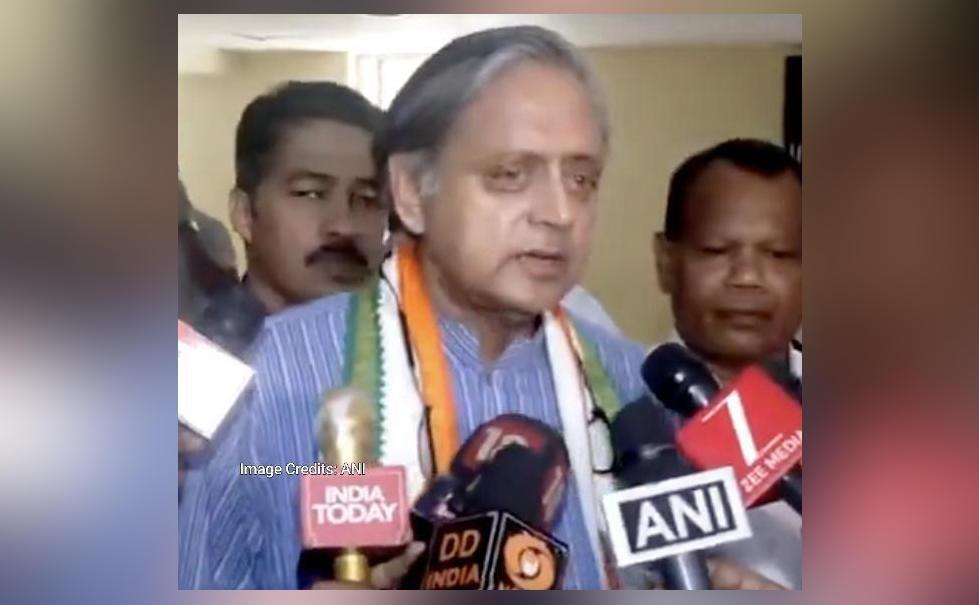
Title: Iran & Israel have been our friends, all we can do is observe: Tharoor
The ongoing conflict between Iran and Israel has been making headlines globally, with the death toll reaching over 650 people. Amidst the chaos and destruction, Congress leader Shashi Tharoor has made a rather poignant statement, acknowledging the complex relationship between the two countries and India’s stance in the matter.
In a recent statement, Tharoor emphasized that both Iran and Israel have been India’s friends, and as such, it is natural to hope for peace and stability in the region. However, he also acknowledged the reality that, for now, India can only observe the situation with concern and attention.
Tharoor’s statement is a nuanced take on the conflict, acknowledging the complexities of international relations and the delicate balance of power dynamics in the region. India has traditionally maintained good relations with both Iran and Israel, and any move that would jeopardize these relationships would be a significant concern for the country.
Iran and Israel have been locked in a bitter conflict for weeks, with both sides trading blows and accusations. The situation has escalated to the point where the United Nations has called for an emergency meeting to address the humanitarian crisis in the region.
Tharoor’s statement is a reminder that, despite the complexity of the situation, India’s primary concern is the well-being of its people and the stability of the region. As a nation that has struggled to maintain its own internal peace and security, India is acutely aware of the devastating consequences of conflict.
In recent years, India has made significant strides in its relations with both Iran and Israel. The country has been a key player in the Iran nuclear deal, and has also maintained a strong relationship with Israel, which is one of its largest trading partners.
However, the current conflict has put India in a difficult position. The country is caught between its desire to maintain good relations with both Iran and Israel, and its need to take a stance on the conflict. Tharoor’s statement is a recognition of this dilemma, and a acknowledgment that India can only do so much to influence the situation.
In the past, India has taken a more vocal stance on international conflicts, often siding with its allies and friends. However, in the case of the Iran-Israel conflict, India’s approach has been more measured and cautious.
This is likely due to the fact that India has significant economic and strategic interests in both countries. The country is a major importer of Iranian oil, and has also invested heavily in Israeli technology and innovation.
Furthermore, India’s relationship with both Iran and Israel is rooted in its historical and cultural ties. India has a significant diaspora community in Israel, and has also maintained strong cultural and educational ties with Iran.
In light of these factors, it is likely that India will continue to tread a fine line in its approach to the conflict. While the country may not take a direct stance on the conflict, it will likely continue to maintain good relations with both Iran and Israel, and seek to play a constructive role in resolving the crisis.
Tharoor’s statement is a recognition of this reality, and a acknowledgment that India’s role in the conflict will be limited to observation and concern. As a nation that has struggled to maintain its own internal peace and security, India is acutely aware of the devastating consequences of conflict, and will likely continue to prioritize diplomacy and dialogue in its approach to international relations.
In conclusion, Tharoor’s statement is a nuanced take on the Iran-Israel conflict, acknowledging the complexities of international relations and the delicate balance of power dynamics in the region. As India continues to navigate its relationships with both Iran and Israel, it is likely that the country will prioritize diplomacy and dialogue, and seek to play a constructive role in resolving the crisis.



